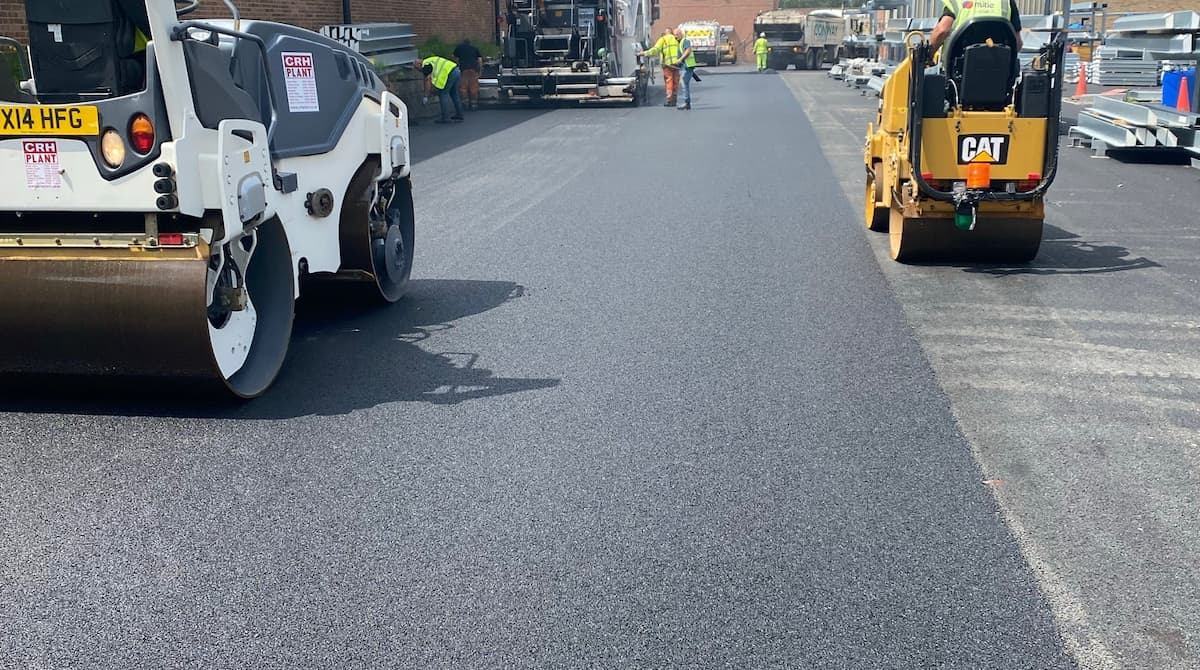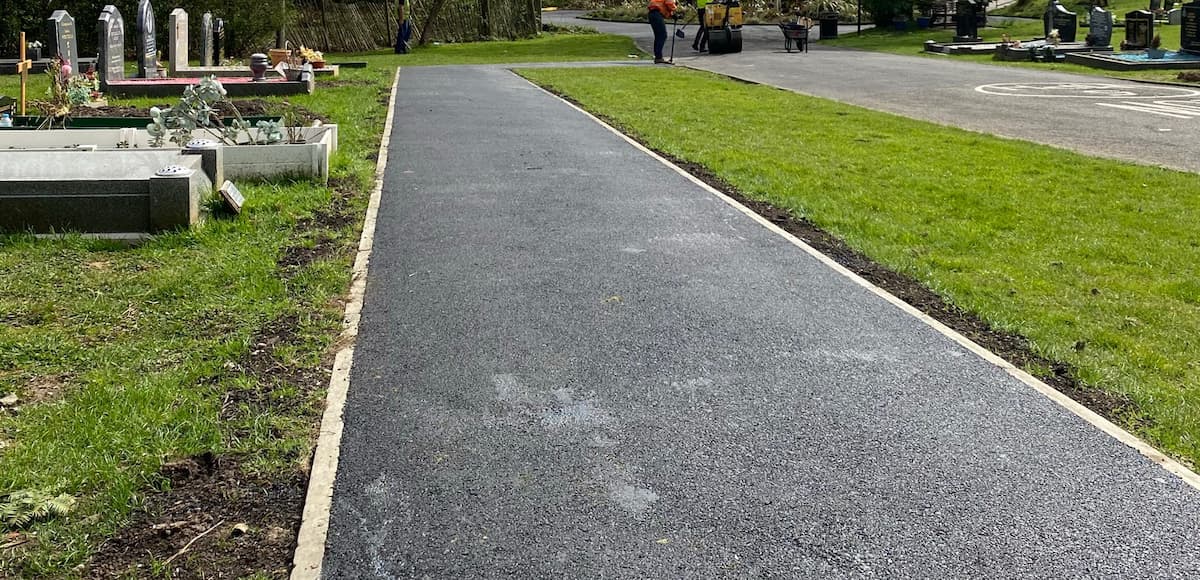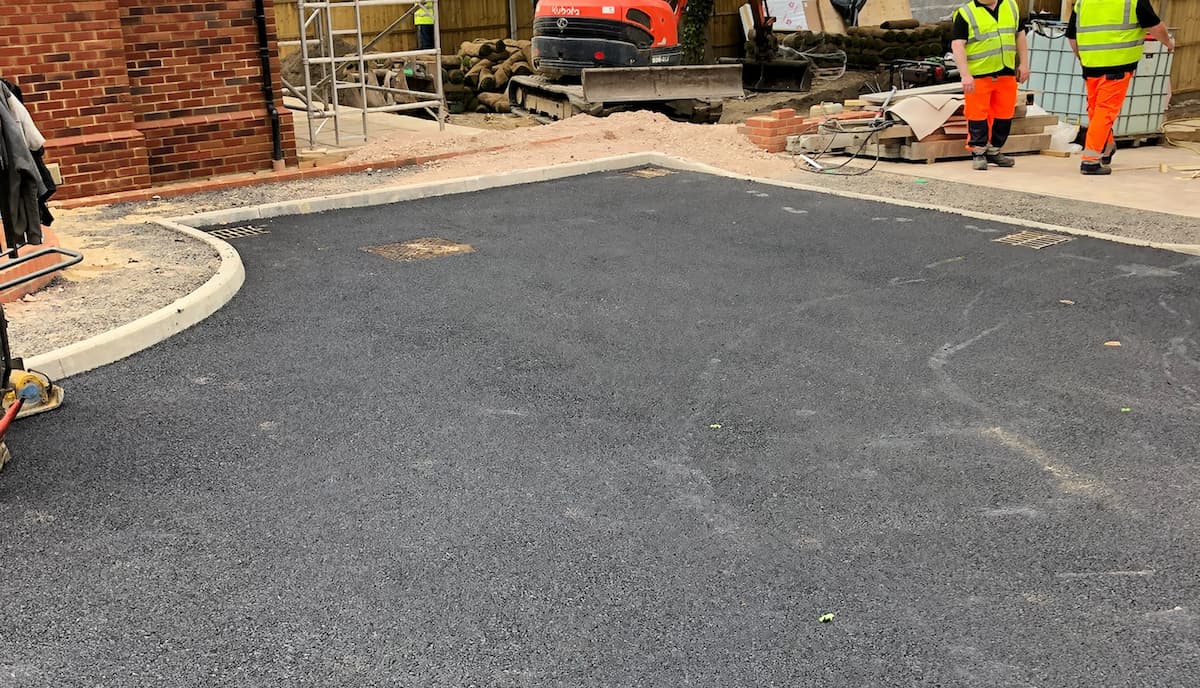Commercial Road Resurfacing: Key Considerations for Long-Lasting and Cost-Effective Solutions
September 30, 2024 Commercial, Road Resurfacing, Road Surfacing 4 min read

In the competitive world of business, maintaining the infrastructure of your commercial property is essential for safety, aesthetics, and functionality. One critical aspect of this maintenance is road resurfacing. Commercial road resurfacing not only improves the look of your property but also ensures the longevity and safety of the pavements, roads and other surfaces. This article delves into commercial road resurfacing, offering valuable insights for business owners, so that you can understand the key considerations and the process involved.
Understanding Commercial Road Resurfacing
What is Road Resurfacing?
Road resurfacing, also known as pavement resurfacing or overlay, involves applying a new layer of asphalt over an existing surface. This process is crucial for fixing wear and tear, filling cracks, and providing a smooth driving surface. For commercial properties, this can significantly impact customer and employee experience and safety.
Why is Road Resurfacing Important?
- Safety: Regular resurfacing prevents accidents caused by potholes and uneven surfaces.
- Appearance: A well-maintained surface enhances the visual appearance of your property.
- Longevity: Professional resurfacing extends the lifespan of the road, pavement or car park, saving costs on frequent repairs.
- Value: A well looked after and safe road can increase the property value and attract more customers.

Road Surfacing Materials
Key Considerations for Commercial Resurfacing
Assessing the Condition
Before starting on a resurfacing project, it’s essential to assess the current condition of the road or surface. This involves:
- Inspection: Carry out a thorough inspection to identify the extent of damage.
- Core Sampling: Extract samples to determine the surface’s structural integrity.
- Drainage Evaluation: Ensure adequate drainage systems are in place to prevent water damage.
Choosing the Right Materials
The choice of materials significantly influences the durability and quality of the resurfacing. For commercial applications, consider:
- High-Quality Asphalt: Opt for durable and weather-resistant asphalt to withstand heavy traffic.
- Polymer-Modified Asphalt: Offers enhanced flexibility and resistance to temperature fluctuations.
- Recycled Materials: Environmentally friendly options that reduce cost and environmental impact.
Professional Expertise
Hiring a reputable road surfacing contractor is crucial for a successful project. Key aspects to look for include:
- Experience: Look for contractors with a proven track record in commercial road resurfacing, not just residential.
- Certifications: Ensure they have the necessary licences, insurance and certifications.
- References: Check past projects and customer reviews for reliability and quality of work.
Cost Considerations
Budgeting for road resurfacing involves:
- Initial Costs: Labour, materials, and machinery.
- Long-Term Savings: Investing in high-quality materials and experienced contractors reduces future maintenance costs.
- Quotations: Obtain multiple quotes to compare prices and services.
Environmental Impact
Consider the environmental implications of your resurfacing project:
- Sustainable Materials: Use recycled and eco-friendly materials where possible.
- Waste Management: Ensure proper disposal and recycling of old pavement materials.
- Green Certifications: Aim for certifications that reflect environmentally responsible practices.

Road Surfacing Process
Steps Involved in Commercial Resurfacing for Roads
Planning and Design
- Development of a comprehensive plan including traffic management.
- Scheduling to minimise disruption to business operations.
Preparation of Existing Surface
- Cleaning and removal of debris.
- Repairs of existing potholes and cracks.
Applying the New Layer
- Even application of asphalt to achieve a smooth surface.
- Compacting the asphalt to enhance durability.
Final Touches
- Line marking for parking spaces and traffic lanes.
- Installation of signage for guidance and safety.
Maintenance Advice for Prolonged Durability
Post-resurfacing maintenance is vital to ensure longevity. Key tips include:
- Regular Cleaning: Remove debris and water to prevent damage.
- Seal Coating: Apply a sealant periodically to protect against weather and wear.
- Prompt Repairs: Address minor damages quickly to prevent them from worsening.
- Scheduled Inspections: Conduct regular inspections to identify and address potential issues early.
Commercial resurfacing for roads is a significant investment that requires careful planning, high-quality materials, and professional expertise. Ensuring the safety, appearance, and functionality of your pavement enhances your property’s value. By considering the factors outlined in this article, business owners can make informed decisions and achieve a durable, cost-effective road resurfacing solution. For expert consultation and services in road resurfacing, contact reputable professionals in the industry.
Get your free surfacing quote
Let our team of experts handle your surfacing — get a free quote today.